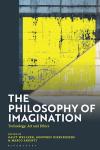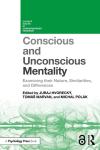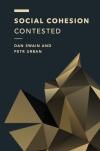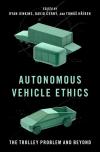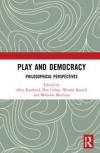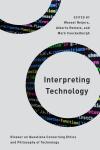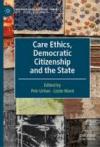
Habitability: Planetarity vs Cosmopolitics
An important shift is taking place in environmental philosophy with regard to one of the field’s most fundamental concepts. The notion of ecological “sustainability” is being slowly replaced by the notion of the “habitability” of Earth in much contemporary discussion of environmentalism. This article focuses on two philosophies of habitability that have significantly impacted our thinking about climate change in recent years: planetarity and cosmopolitics. The two frameworks are frequently combined in various formulations of a more-than-human politics. Yet the philosophical paradigms, and their political implications, are, in fact, radically different, as this analysis will demonstrate. These crucial differences are amply evidenced through a comparative analysis of Dipesh Chakrabarty’s recent writing on planetarity and Isabelle Stengers’ work on cosmopolitics. The article argues, ultimately, that planetarity and cosmopolitics are incompatible. Further, the adoption of either approach corresponds to a specific philosophical and political choice that materially shapes the ways in which we think about politics with nonhumans in the 21st century.
Georgetown University
The Philosophy of Imagination
Combining perspectives from both continental and analytic philosophy, this timely volume explores how imagination today both shapes and is shaped by technology, art and ethics.
Imagination is one of the most significant and broadly examined concepts in contemporary philosophy and is frequently understood as a basic human faculty that enables complex activities. This book shows, however, that imagination is more than a mere enabler. Whilst imagination shapes our experiences, it is at the same time shaped by our environments. Some of the most creative manifestations of imagination are the result of its two-way interaction with art or technology, or both. In short, imagination co-shapes us.
Bloomsbury
Conscious and Unconscious Mentality
In this collection of essays, experts in the field of consciousness research shed light on the intricate relationship between conscious and unconscious states of mind.
Advancing the debate on consciousness research, this book puts centre stage the topic of commonalities and differences between conscious and unconscious contents of the mind. The collection of cutting-edge chapters offers a breadth of research perspectives, with some arguing that unconscious states have been unjustly overlooked and deserve recognition for their richness and wide scope. Others contend that significant differences between conscious and unconscious states persist, highlighting the importance of their distinct characteristics. Explorations into the nature of the transition from unconscious to conscious mind further complicate the picture, with some authors questioning whether a sharp divide between unconscious and conscious states truly exists.
Taylor and Frances
Social Cohesion Contested
'Social cohesion’ has become a buzzword guiding policy and social research in recent decades. Our book criticizes dominant framings of ‘social cohesion’ in both policymaking and social research. It offers accessible accounts of the development of the concept of ‘social cohesion’ in the policies of the EU, Council of Europe, OECD and UN. The book provides an example of a critical philosophical approach applied to the analysis of concepts in social policy and research.
Rowman & Littlefield Publishers
Autonomous Vehicle Ethics: The Trolley Problem and Beyond
"A runaway trolley is speeding down a track" So begins what is perhaps the most fecund thought experiment of the past several decades since its invention by Philippa Foot. Since then, moral philosophers have applied the "trolley problem" as a thought experiment to study many different ethical conflicts - and chief among them is the programming of autonomous vehicles. Nowadays, however, very few philosophers accept that the trolley problem is a perfect analogy for driverless cars or that the situations autonomous vehicles face will resemble the forced choice of the unlucky bystander in the original thought experiment.
This book represents a substantial and purposeful effort to move the academic discussion beyond the trolley problem to the broader ethical, legal, and social implications that autonomous vehicles present. There are still urgent questions waiting to be addressed, for example: how AVs might interact with human drivers in mixed or "hybrid" traffic environments; how AVs might reshape our urban landscapes; what unique security or privacy concerns are raised by AVs as connected devices in the "Internet of Things"; how the benefits and burdens of this new technology, including mobility, traffic congestion, and pollution, will be distributed throughout society; and more.
An attempt to map the landscape of these next-generation questions and to suggest preliminary answers, this volume draws on the disciplines of philosophy, sociology, economics, urban planning and transportation engineering, business ethics and more, and represents a global range of perspectives.
Oxford University Press

Ethical Dimensions of Enactive Cognition -- Perscpectives on Enactivism, Bioethics and Applied Ethics
Geoffrey Dierckxsens as Guest Editor of Topoi on the topic of ethical dimensions of enactive cognition.
Springer
Play and Democracy: Philosophical Perspectives
This book explores the complex and multi-layered relationships between democracy and play, presenting important new theoretical and empirical research. It builds new paradigmatic bridges between philosophical enquiry and fields of application across the arts, political activism, children’s play, education and political science.
Adding extra depth to our understanding of the significance of play as a political, cultural and social power, this book is fascinating reading for any serious student or researcher with an interest in play, philosophy, politics, sociology, arts, sport or education.
Routledge
Unchaining Solidarity: On Mutual Aid and Anarchism with Catherine Malabou
Considering solidarity and mutual aid at the intersection of political philosophy and biology, made more urgent by the COVID-19 crisis, this book is grounded in the work of Catherine Malabou and takes her theories in creative new directions.
Rowman & Littlefield
Interpreting Technology: Ricoeur on Questions Concerning Ethics and Philosophy of Technology
Paul Ricœur has been one of the most influential and intellectually challenging philosophers of the last century, and his work has contributed to a vast array of fields: studies of language, of history, of ethics and politics. However, he has up until recently only had a minor impact on the philosophy of technology. Interpreting Technology aims to put Ricœur’s work at the centre of contemporary philosophical thinking concerning technology. It investigates his project of critical hermeneutics for rethinking established theories of technology, the growing ethical and political impacts of technologies on the modern lifeworld, and ways of analysing global sociotechnical systems such as the Internet. Ricœur’s philosophy allows us to approach questions such as: how could narrative theory enhance our understanding of technological mediation? How can our technical practices be informed by the ethical aim of living the good life, with and for others, in just institutions? And how does the emerging global media landscape shape our sense of self, and our understanding of history? These questions are more timely than ever, considering the enormous impact technologies have on daily life in the 21st century: on how we shape ourselves with health apps, how we engage with one-another through social media, and how we act politically through digital platforms.
Rowman & Littlefield
Care Ethics, Democratic Citizenship and the State
This book reflects on theoretical developments in the political theory of care and new applications of care ethics in different contexts. The chapters provide original and fresh perspectives on the seminal notions and topics of a politically formulated ethics of care. It covers concepts such as democratic citizenship, social and political participation, moral and political deliberation, solidarity and situated attentive knowledge. It engages with current debates on marketizing and privatizing care and deals with issues of state care provision and democratic caring institutions. It speaks to the current political and societal challenges, like crisis of Western democracy related to the rise of populism and identity politics worldwide. The breadth of the contributions is reflected in that it brings together perspectives of care theorists from three different continents and ten different countries and gives voice to their unique local insights from very different socio-political and cultural contexts.
Palgrave Macmillan


